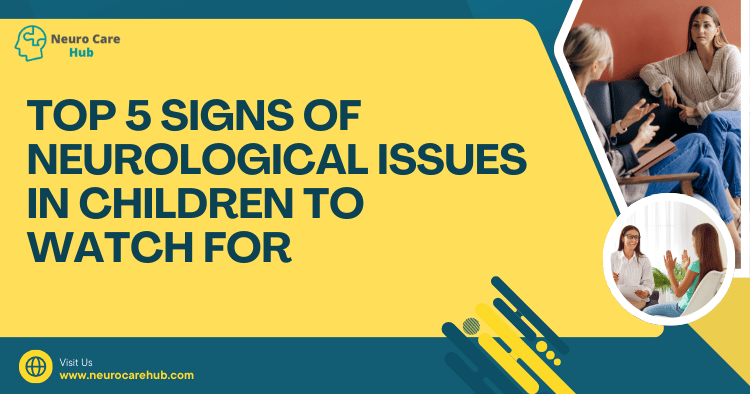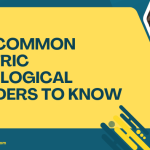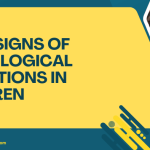Table of Contents:
- Introduction
- Delayed Developmental Milestones
- Changes in Behavior or Personality
- Motor Skill Difficulties
- Seizures or Unusual Movements
- Persistent Headaches
- Conclusion
- FAQs
Introduction
As parents and caregivers, it’s essential to stay attuned to your child’s health and development. Neurological issues in children can manifest in various ways, and catching these signs early can make a significant difference in treatment and outcomes. In this article, we will explore the top five signs of neurological issues in children that you should watch for, empowering you with the knowledge to seek help when necessary.
1. Delayed Developmental Milestones
One of the first signs that may indicate a neurological issue in a child is the delayed achievement of developmental milestones. This can include delays in:
- Motor Skills: Such as crawling, walking, or holding objects.
- Language Skills: Difficulty in babbling, forming words, or understanding language.
- Social Skills: Challenges in interacting with peers or recognizing social cues.
What to Do: If your child is not meeting developmental milestones, consult your pediatrician. They may recommend assessments or referrals to specialists. The CDC provides helpful guidelines on developmental milestones to track your child’s growth.
Visual Aid: Developmental Milestones Table
| Age Range | Milestone Example |
|---|---|
| 0-3 months | Smiling, cooing |
| 4-6 months | Rolling over, reaching |
| 1 year | Walking, saying “mama” |
| 2 years | Running, two-word phrases |
| 3 years | Playing with others, sentences |
2. Changes in Behavior or Personality
Noticing significant changes in your child’s behavior or personality can be concerning. This might include:
- Increased irritability or mood swings
- Withdrawal from siblings or friends
- Sudden changes in academic performance
What to Do: If you observe these changes, it’s vital to communicate with your child openly. Often, children may not express what they’re feeling. A consultation with a child psychologist or neurologist can provide insights into these behavioral changes.
Additional Resources:
The American Academy of Pediatrics offers guidance on mental health in children.
3. Motor Skill Difficulties
Motor skill difficulties can manifest in various ways, such as:
- Trouble with coordination (e.g., difficulty running or catching a ball)
- Clumsiness or frequent falls
- Problems with fine motor skills, like writing or buttoning clothes
What to Do: If your child struggles with motor skills, consider occupational therapy. Therapists can work with your child to improve their coordination and strength through fun, engaging activities.
Visual Aid: Types of Motor Skills
| Type of Skill | Examples |
|---|---|
| Gross Motor Skills | Running, jumping |
| Fine Motor Skills | Drawing, cutting |
4. Seizures or Unusual Movements
Seizures can be one of the most alarming signs of neurological issues. Signs to look for include:
- Convulsions or shaking
- Staring spells or loss of awareness
- Sudden jerking movements
What to Do: If you suspect your child may be having seizures, seek immediate medical attention. Neurologists can perform tests like EEGs to diagnose the type of seizures and recommend appropriate treatments.
Helpful Resource: The Epilepsy Foundation provides extensive information on seizures in children.
5. Persistent Headaches
While headaches can be common in children, persistent or severe headaches can indicate underlying neurological issues. Look for:
- Frequent headaches that disrupt daily activities
- Accompanied symptoms such as nausea or sensitivity to light
- Changes in the frequency or intensity of headaches
What to Do: If your child experiences frequent or severe headaches, consult your healthcare provider. They may recommend imaging tests like an MRI or CT scan to determine the cause.
Conclusion
Being vigilant about your child’s health is crucial. Recognizing the signs of potential neurological issues can lead to early intervention, which is often key to effective treatment. If you notice any of the signs discussed in this article, don’t hesitate to reach out to a healthcare professional for guidance and support.
FAQs
Q: What should I do if I notice one or more signs of neurological issues in my child?
A: Consult your pediatrician as soon as possible. They can provide a thorough evaluation and guide you through the next steps.
Q: Are all delays in development a sign of a neurological problem?
A: Not necessarily. Some children develop at different rates. However, consistent delays should be assessed by a professional.
Q: Can neurological issues be treated?
A: Yes, many neurological issues can be managed or treated effectively, especially with early intervention.
Q: How can I support my child if they have a neurological condition?
A: Collaborative care between healthcare providers, therapists, and educators can help. Additionally, fostering a supportive and understanding home environment is crucial.
By being proactive and informed, you can help ensure your child’s well-being. Remember, you are not alone in this journey; seek support and guidance when needed.
For further insights on neurological care and its importance, check out Top 5 Essential Insights on Neuro Care You Need to Know or Top 5 Reasons Neuro Care is Essential in Modern Medicine.






